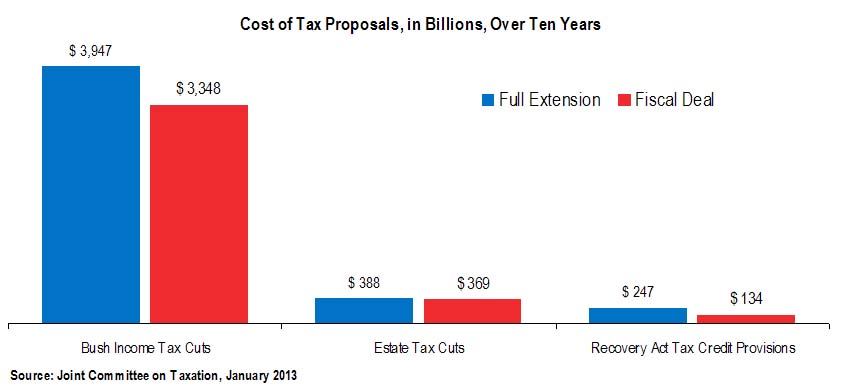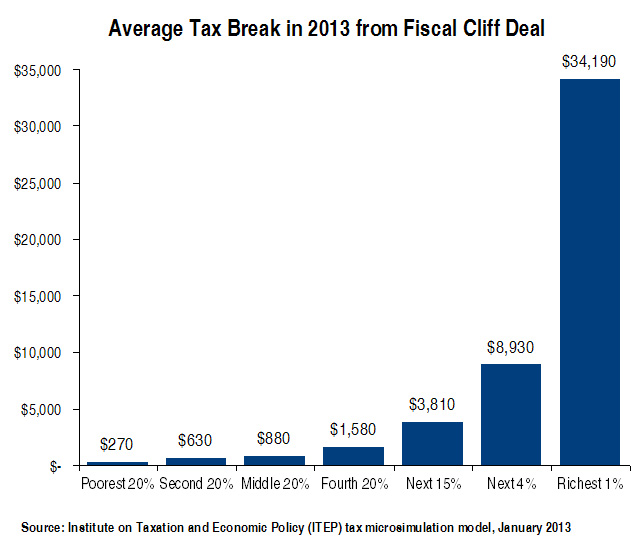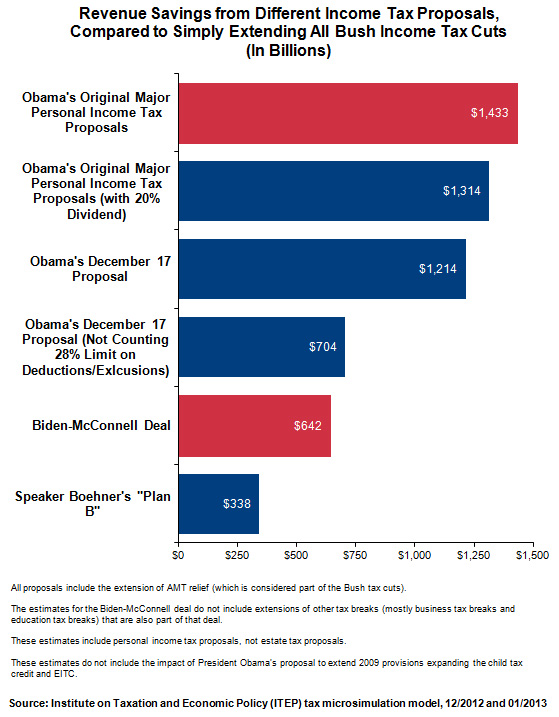The recently approved fiscal cliff deal (the American Taxpayer Relief Act of 2012) includes a package of provisions often called the “extenders” because they extend several special interest tax breaks for one or two years each. CTJ’s recent report on the revenue impacts of the fiscal cliff deal highlights a strange thing about the revenue “score” of these provisions from the Joint Committee on Taxation (JCT), the official revenue estimators for Congress.
JCT’s figures show that while the ten-year cost of the extenders is $76 billion, the cost in the first two years would actually be over $100 billion — which is greater than the revenue “saved” in the first two years of the decade by allowing the high-income Bush tax cuts to expire.
This is largely explained by one of the most significant of the extenders: the provision extending “bonus depreciation,” which allows companies buying equipment to take depreciation deductions more quickly than the equipment actually wears out.
The provision will allow companies to take depreciation deductions much earlier than they otherwise would, which will cost the Treasury more than $50 billion over the first two years of the decade, according to JCT. But because those deductions will then be unavailable in later years when they would have otherwise have been claimed, the Treasury will actually collect more revenue during the rest of the decade, so that, according to JCT, the extension of bonus depreciation will have a net cost of just $4.7 billion by the end of the decade.
Of course, in the event that Congress perpetually extends this provision, it will continue to have a large cost each year — and the legislative history makes this result seem likely. Bonus depreciation was enacted in 2002 and has only been allowed to expire for two years (2006 and 2007) since then. In every other year since 2002, Congress made this “temporary” break available. This legislative history is explained in a report from the Congressional Research Service which reviews efforts to quantify the impact of the provision and explains that “the studies concluded that accelerated depreciation in general is a relatively ineffective tool for stimulating the economy.”
Other breaks extended as part of the “extenders” package, like the research credit and the so-called “active financing exception” are officially “temporary” measures but have been extended over and over again for the last several years. Clearly, Congress’s practice of extending these breaks every couple years must end.






